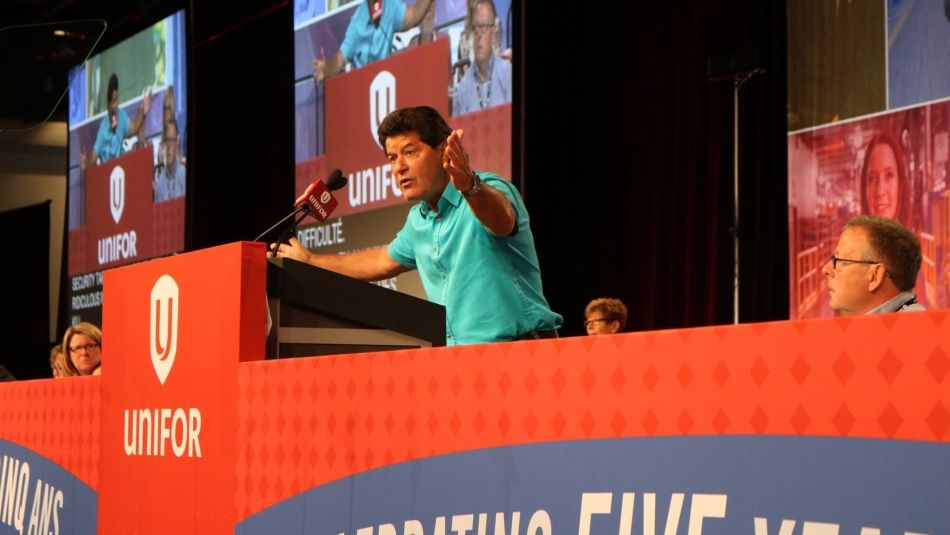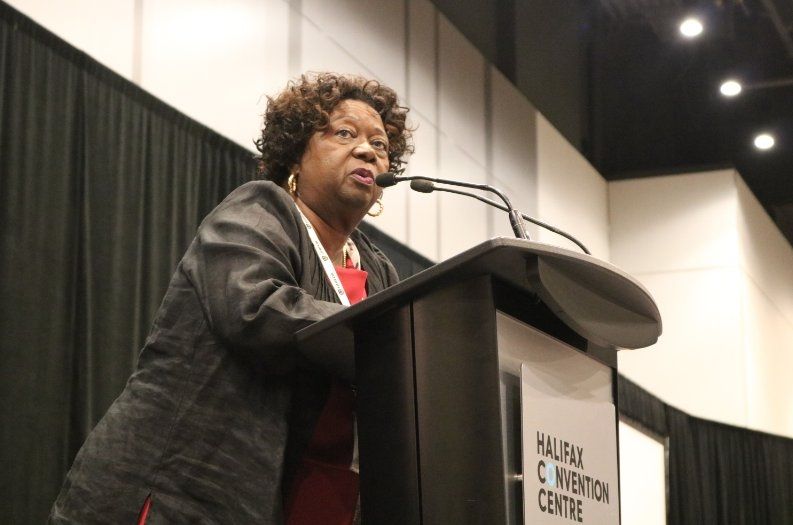
Share
Beginning with a vote to reaffirm disaffiliation from the CLC, delegates to Canadian Council committed to continue the fight for workers’ rights by rebuilding the labour movement from the ground up, at the bargaining table and through political action.
“We have made one heck of a difference. We’ve changed the face of progressive politics in this country. We have made history,” Unifor National President Jerry Dias said in his opening address.
“And we’ll continue to make history. Our future is still being written. And you are the ones that are writing it.”
Council began with a debate about whether to reaffirm the decision of the National Executive Board in January to disaffiliate from the CLC in a dispute over the Congress’s failure to prevent attacks on workers from their U.S.-based unions.
CLC rules meant to ensure workers have democratic rights, and that Canadian members of U.S. unions maintain their autonomy are not being followed or respected, allowing U.S.-based unions to trample on the rights of workers in Canada.
“Workers are not the chattels of their union. Workers must have the right to choose their own union,” said Chris MacDonald, Assistant to the National President.
Quebec director Renaud Gagné said collective bargaining is at the centre of Unifor’s strength and influence.
“There is no doubt on the side of employers that we are an organization that defends its values, beliefs and members,” he said. “The challenges are many, but I have no doubt that together we will succeed in meeting them hands down.”
Dias recalled the strength of Unifor’s bargaining activity, especially at critical negotiations in the salt mine in Goderich, Bombardier Downsview, the Port Arthur Health Centre in Thunder Bay and more.
“We can never lose sight of how critical a tool collective bargaining is for workers to take back our share of the wealth that we help create every single day,” Dias said. “And we are certainly using our collective bargaining to shake things up.”
Dr. Danyaal Raza of Canadian Doctors for Medicare spoke to delegates about the need for a national pharmacare plan, pointing out that more than 1 million Canadians forgo basic needs to pay for medications.
“A broken system leaves my patients and our family members with broken choices,” said Raza. “People are turning down their Hydro just to pay for medically needed medications.”
Delegates voted at the 2017 Canadian Council to support pharmacare, and this year voted to play an active role in the 2019 federal election with pharmacare and the rights of workers as key policy issues.
Spoken word poet, professor and activist El Jones brought delegates to their feet as she read her poems about feminism, racism, and colonization.
“I want to raise issues with you,” she said between poems.
Unifor’s annual Nelson Mandela Award was presented to social justice advocate Jean Augustine, the first black woman elected to Canada’s Parliament in 1993.
“I learned very early in life growing up in a poor environment that serving and touching people’s lives is what it’s all about,” Augustine said.



